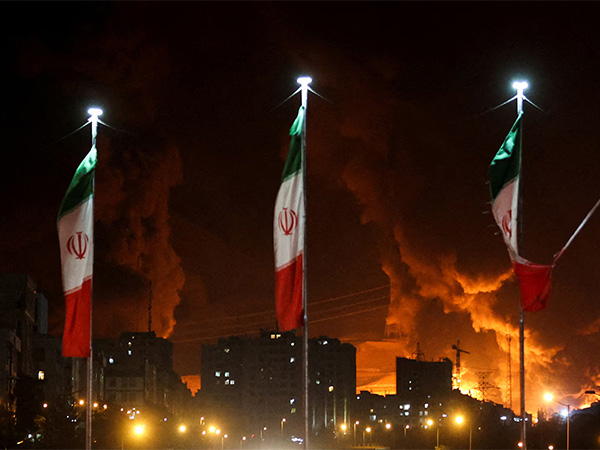Israeli Air Force jets launched precision strikes on several high-value military command centers belonging to the Islamic Revolutionary Guard Corps (IRGC) and Internal Security Forces in Tehran, the Israel Defense Forces (IDF) confirmed. These attacks were coordinated with intelligence from the IDF’s Intelligence Directorate and mark a major escalation in the ongoing confrontation between Israel and Iran.
The targeted sites included the headquarters of the Basij, a powerful paramilitary wing of the IRGC known for enforcing Islamic law and internal surveillance, as well as the Alborz Corps, which is responsible for maintaining regime stability across the Tehran District. In addition, the Intelligence and General Security Police—both integral to Iran’s internal security apparatus—were struck during the operation.
According to the IDF, these command centers play a vital role in enabling the Iranian regime to maintain military and internal control. The airstrikes dealt a significant blow to Tehran’s ability to project power domestically and regionally, the Israeli military stated.
Israeli Prime Minister Benjamin Netanyahu addressed the nation following the strikes, stating that Israel is nearing its strategic objectives in Iran. He emphasized that the operation seeks to neutralize two existential threats: Iran’s nuclear weapons program and its growing arsenal of ballistic missiles.
“We are very, very close to completing them,” Netanyahu said, referencing the goals of the operation. He added that Israel had inflicted “very serious damage” to Iran’s Fordow nuclear facility and claimed that more than half of Iran’s ballistic missile launchers had been destroyed in the past ten days.
The Israeli offensive follows the United States’ Operation Midnight Hammer, which involved airstrikes on Iran’s Fordow, Natanz, and Isfahan nuclear facilities. Netanyahu said he had shared Israel’s concerns with U.S. President Donald Trump, who he claimed understood the necessity of Israel’s actions.
The Prime Minister further suggested that Iran’s military and financial support to Hamas and Hezbollah is central to the ongoing conflict in Gaza, stating that weakening Tehran would contribute directly to Israel’s campaign against Hamas. He reiterated that the war in Gaza could end immediately if Hamas surrendered and released all remaining hostages.
The situation remains volatile, with the potential for wider regional escalation as Iran weighs its response. Israel’s actions mark one of the most direct attacks on Iranian soil targeting military infrastructure, further straining already fragile regional dynamics.













